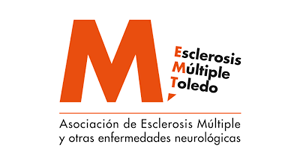Multiple sclerosis (MS) is a chronic immune-mediated inflammatory demyelinating illness of the central nervous system of unknown etiology and multifactorial origin [1,2]. MS is the cause of disability in younger adults. Among these disabilities, dexterity and activities of daily living (ADL) limitations on the upper limbs (ULs) represent one of the most common problems in patients with MS, usually manifesting as weakness or ataxia.
Johansson et al. [3] reported that up to 76% of MS patients present UL impairment, and that in at least 50% of patients, the severity of the dysfunction was moderate. Kamm et al. [4] and Choi et al. [5] reported that after 15 years of disease evolution, the majority of MS patients report hand dysfunction, so patients show compensations or decreased UL functions [4,5], although its importance may be under-recognized relative to walking impairment, which is the hallmark symptom of MS [6].
At present, MS rehabilitation includes technology such as virtual reality (VR), as a complement to conventional therapy programs for hand dexterity, achieving a higher treatment intensity at a sustainable cost [7]. VR through video games presents benefits in the general population such as improvements in overall mobility, eye–hand coordination, space–time organization, and attention and concentration, and benefits in terms of the speed of decision making, memory, social contact when playing in groups, spontaneity, and originality [7,8]. However, few studies exist on the effects that VR has on the manual dexterity of patients with MS.
Serious games are defined as games designed for a primary purpose other than that of pure entertainment, and which promote learning and behavior changes. In the MS context, new low-cost markerless devices have emerged [8–10] combined with serious games for rehabilitation aims. However, not all clinical settings or hospitals have these technologies due to acquisition or marketing problems. The Nintendo Switch (NS)® is the ninth video game console developed by Nintendo®. It was unveiled in October 2016 and released worldwide in March 2017. Joy-Cons® are the primary game controllers for the NS® video game console. The NS Joy-Cons’® infrared motion camera sensor allows capturing the movement of the patient’s hands without the need to place sensors or devices on the body. Through this device, the patient could be prompted to perform movements and functional tasks in a virtual and encouraging environment. This system presents important advantages over other motion capture systems, for example, its portability, ease of use, commercial availability, relatively low cost, and non-invasive nature [8]. However, there is no previous evidence to support the therapeutic use of the NS® in the treatment of UL motor disorders in people with MS. Moreover, as exercise has the potential to help both motor and nonmotor aspects, there is a need to corroborate this hypothesis in terms of cognitive function in MS patients through the Nintendo Switch (NS). The primary aim of the present randomized clinical trial was to evaluate the effects of the NS®, through the Dr Kawashima’s Brain Training® video game combined with a conventional intervention, for improving UL grip muscle strength, coordination, speed of movements, fine and gross dexterity, functionality, quality of life, and executive functions, compared to a control group. Furthermore, we sought to assess satisfaction and compliance levels in MS patients. Our initial hypothesis was that an experimental protocol system using the NS® and based on a commercial video game could improve UL grip muscle strength, coordination, speed of movements, fine and gross dexterity, functionality, and executive functions.

